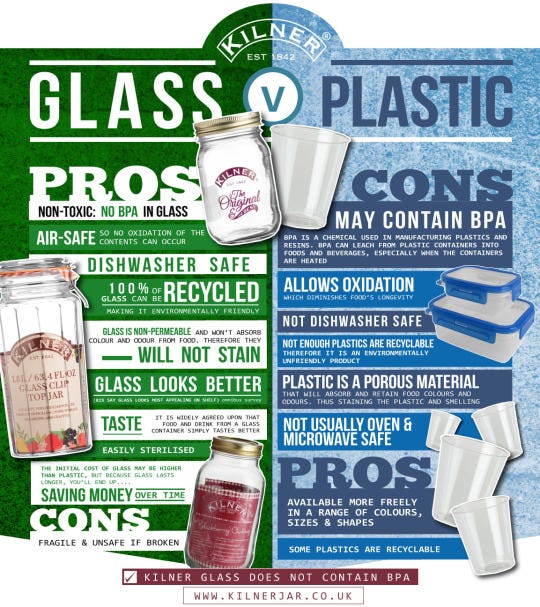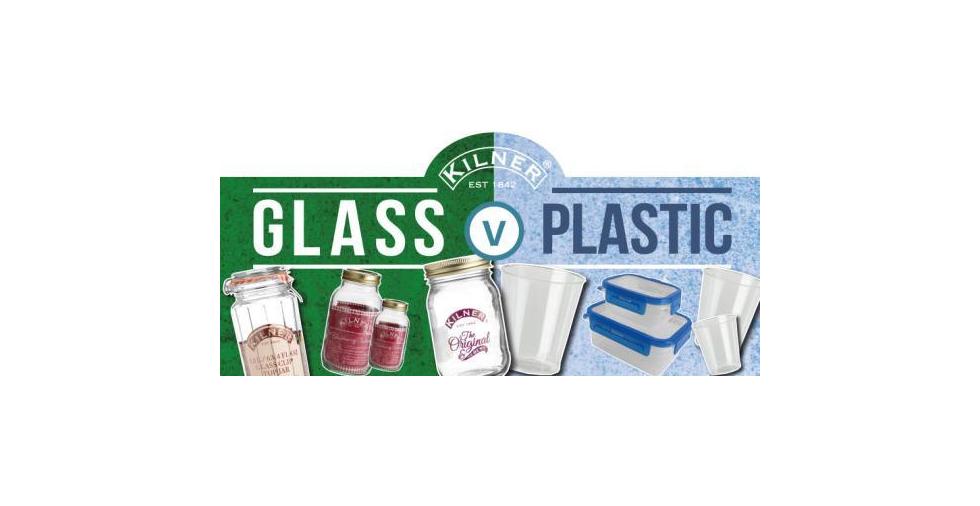Glass storage is not only a more sustainable option but is also a much safer alternative for all the family. Glass does not contain BPA so will keep your food free from unwanted chemicals. Here at Kilner®, all of our storage is made from recyclable glass making it the perfect solution.
What is BPA?
BPA is a common chemical, also known as 4,4’-dihydroxy-2,2-diphenylpropane. It is mainly used in combination with other chemicals in the manufacture of plastics and resins.
BPA is used in the production of polycarbonate, a high-performance transparent, rigid plastic. Polycarbonate is used to make food containers, such as some beverage bottles, infant feeding (baby) bottles, tableware (plates and mugs) and storage containers.
BPA can migrate in small amounts into food and beverages stored in materials containing the substance. As it is such a common chemical that has been in use for several decades, it can be found in small quantities in the urine of most adults.
How may BPA affect you?
The science is not yet completely clear on how BPA may affect humans. BPA may mimic hormones and interfere with the endocrine system of glands, which release hormones around the body. Some scientists think that if it interferes with sex hormones, this could affect puberty or the menopause or cause cancers that are related to hormones. Those calling for a ban suggest that it may be a factor in a rising numbers of human illnesses, such as breast cancer, heart disease and genital birth defects. There is a growing call to stop manufacturing plastics with BPA and using BPA in food containers as there are less hazardous alternatives.
Glass is not only a more sustainable option but does not contain BPA! Keeping you and your family free from unwanted chemicals.




